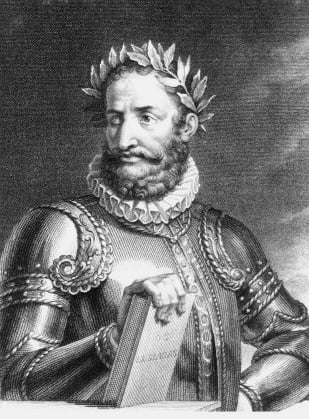Portugal has a rich literary tradition, with poets who have left an indelible mark on world literature. If you are still unfamiliar with Portuguese poetry, you are in for a treat. We will start with the master of the Portuguese word and move on down the centuries to poets of the modern age. Here are six inspiring Portuguese poets who have shaped the country’s poetic landscape.
1. Luís Vaz de Camões (c. 1524-1580)
Luís Vaz de Camões is widely regarded as Portugal’s national poet and one of the most significant figures in Portuguese literature. His magnum opus, “Os Lusíadas” (The Lusiads), is an epic poem celebrating Portuguese history and achievements, particularly Vasco da Gama’s discovery of the sea route to India. This work solidified Camões’s place in the pantheon of great European poets, earning him comparisons to Homer and Virgil.
Beyond his epic poetry, Camões was also a master of lyric poetry. His sonnets, odes, and other verses often explored themes of love, nature, and the human condition. They are considered among the finest examples of Renaissance poetry in the Portuguese language. His work was heavily influenced by both classical literature and the Renaissance movement, blending traditional forms with innovative language and imagery.
A famous line from his Sonnet 11 reads: “Love is a fire that burns unseen” (“Amor é fogo que arde sem se ver”).
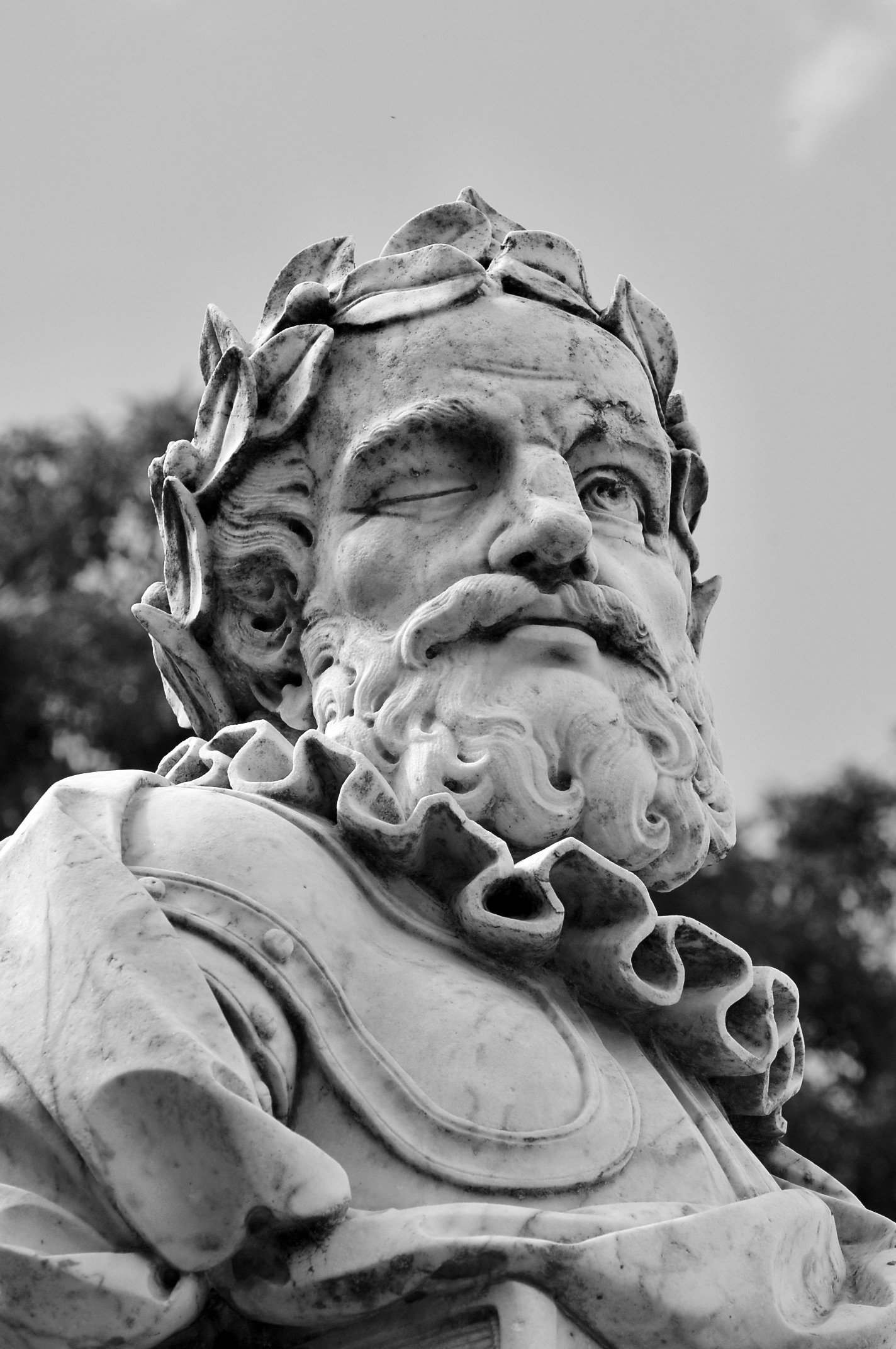
2. Fernando Pessoa (1888-1935)
Fernando Pessoa was a literary genius whose impact on Portuguese poetry cannot be overstated. What sets Pessoa apart is his creation of heteronyms – distinct authorial personalities with their own biographies, writing styles, and philosophies. His most famous heteronyms include Alberto Caeiro, Ricardo Reis, and Álvaro de Campos, each representing a different facet of Pessoa’s creative psyche.
Pessoa’s ortónimo (orthonym) work, published under his own name, is known for its philosophical depth and introspection. His poetry often grapples with questions of identity, reality, and the nature of existence.
One of Pessoa’s well-known lines comes from his poem “Autopsicografia” (Autopsychography): “The poet is a feigner” (“O poeta é um fingidor”). This line encapsulates Pessoa’s complex relationship with authorship and identity, themes that permeate much of his work.
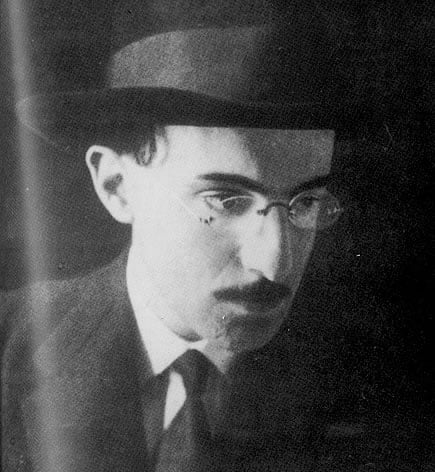
3. Sophia de Mello Breyner Andresen (1919-2004)
Sophia de Mello Breyner Andresen was a prominent 20th-century poet whose work is characterized by its clarity, precision, and profound engagement with the natural world. Her poetry often explores themes of justice, freedom, and spiritual quest, reflecting her deep moral convictions and her Catholic faith. In 1999, she became the first woman to receive the Camões Prize, the most prestigious award in Portuguese-language literature.
Andresen’s poetic style is marked by its simplicity and directness, often drawing inspiration from Greek mythology and the Mediterranean landscape. Her work also frequently addresses social and political issues, particularly during Portugal’s period of dictatorship.
A memorable line from her poem “Arte Poética” (Poetic Art) states: “The poem is a circle drawn around a bird in flight” (“O poema é um círculo traçado à volta de um pássaro em voo”). This metaphor beautifully captures her vision of poetry as an attempt to encapsulate the fleeting and the ineffable.

4. Eugénio de Andrade (1923-2005)
Eugénio de Andrade, born José Fontinhas, was one of Portugal’s most beloved poets of the 20th century. Known for his minimalist style and focus on the musicality of language, Andrade’s poetry often explored themes of love, nature, and the human body. His work is characterized by its sensuality, simplicity, and profound connection to the elemental aspects of life.
Andrade’s poetry eschews complex metaphors and ornate language in favor of clear, concise expressions that nonetheless carry deep emotional resonance. His influence on Portuguese poetry is significant, with many considering him a master of lyrical brevity.
One of his poetic lines, which encapsulates his view on the nature of poetry, states: “Poetry is the art of being alone without loneliness” (“A poesia é a arte de estar só sem solidão”). This quote comes from his book “Rosto Precário” (Precarious Face) published in 1979.
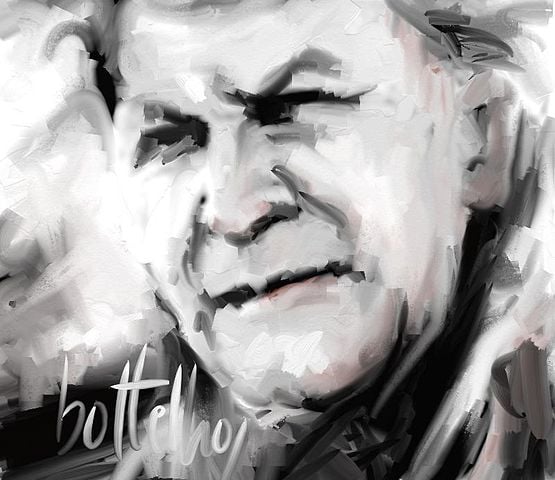
5. David Mourão-Ferreira (1927-1996)
David Mourão-Ferreira was a multifaceted literary figure who excelled as a poet, novelist, and literary critic. His poetry is known for its formal elegance, rich imagery, and exploration of love and eroticism. Mourão-Ferreira’s work often blends classical forms with modern sensibilities, creating a unique voice in Portuguese literature.
As a professor of literature and a prolific essayist, Mourão-Ferreira’s impact extended beyond his poetry. He played a crucial role in shaping literary discourse in Portugal during the second half of the 20th century. His poetry collections, such as “A Secreta Viagem” (The Secret Journey) and “Do Tempo ao Coração” (From Time to the Heart), showcase his mastery of form and his deep engagement with themes of time, memory, and desire.
A notable line from his poem “Barco Negro” (Black Boat) reads: “Love is a word of four letters, like life and like death” (“O amor é uma palavra de quatro letras, como a vida e como a morte”).
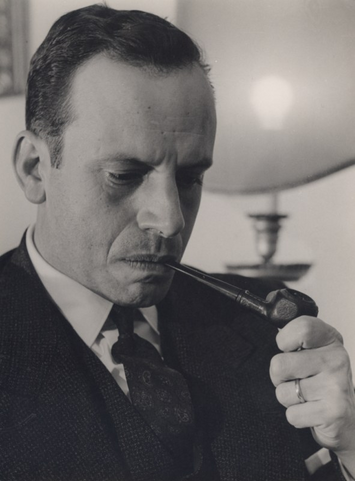
6. Nuno Júdice (1949-2024)
Nuno Júdice is a contemporary Portuguese poet whose work bridges the gap between traditional poetic forms and modern sensibilities. Known for his intellectual depth and intertextual references, Júdice’s poetry often engages with literary tradition while exploring contemporary themes. His work is characterized by its philosophical nature and its exploration of language, memory, and the creative process.
Júdice’s career spans several decades, during which he has published numerous collections of poetry, as well as novels, essays, and literary criticism. His contributions to Portuguese literature have been widely recognized, including receiving the Pessoa Prize in 2019.
Júdice’s poetry often reflects on the act of writing itself, as exemplified in this line from his poem “A Poesia” (The Poetry): “Words are the clothes of silence” (“As palavras são as roupas do silêncio”). This metaphor beautifully captures his view of poetry as a means of giving form to the ineffable.
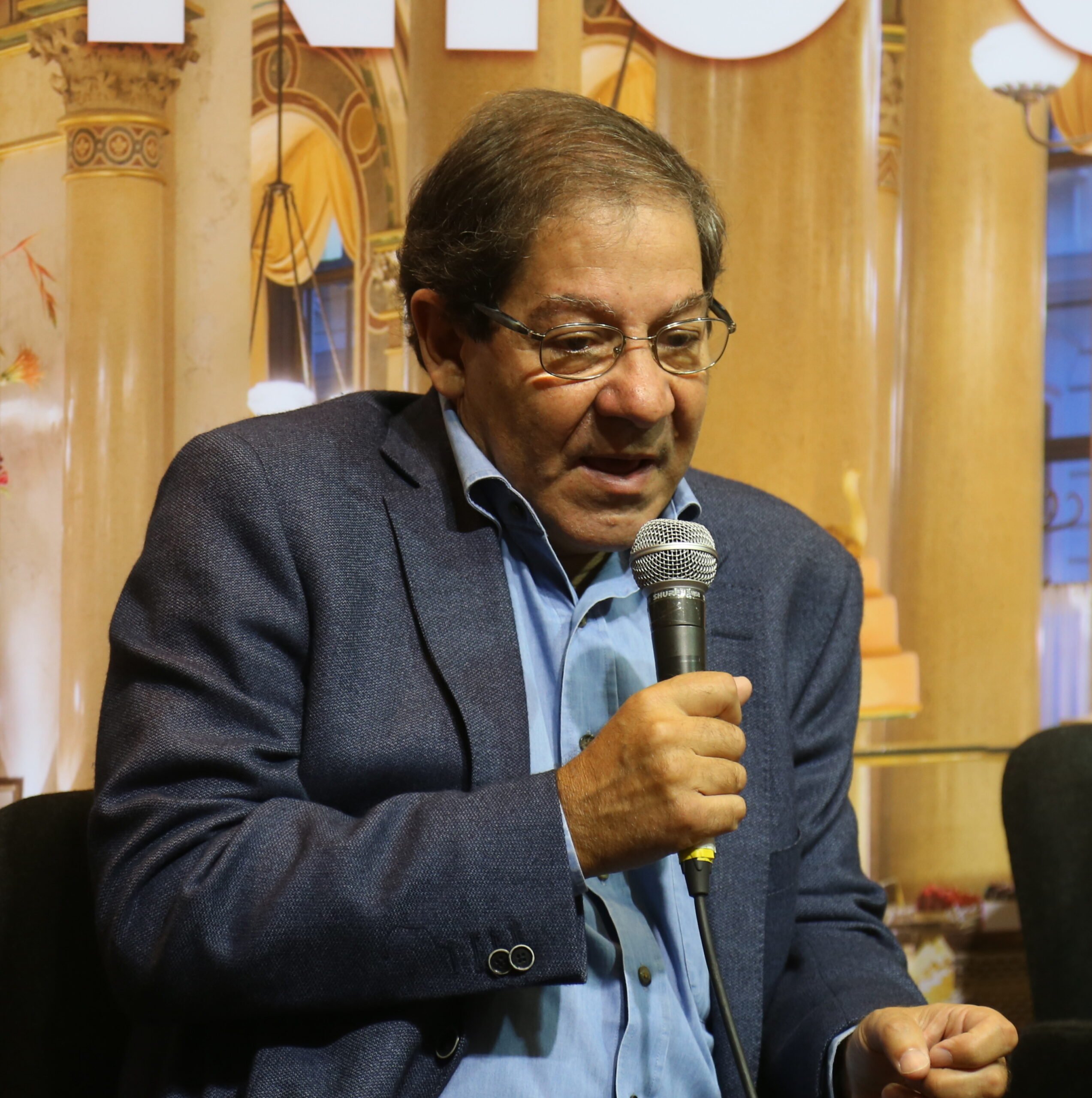
These six poets represent different periods and styles in Portuguese poetry from the Renaissance to the contemporary era. Their works continue to inspire and influence readers and writers around the world. Now that you’ve been formally introduced, we encourage you to check out one of these amazing poets!

